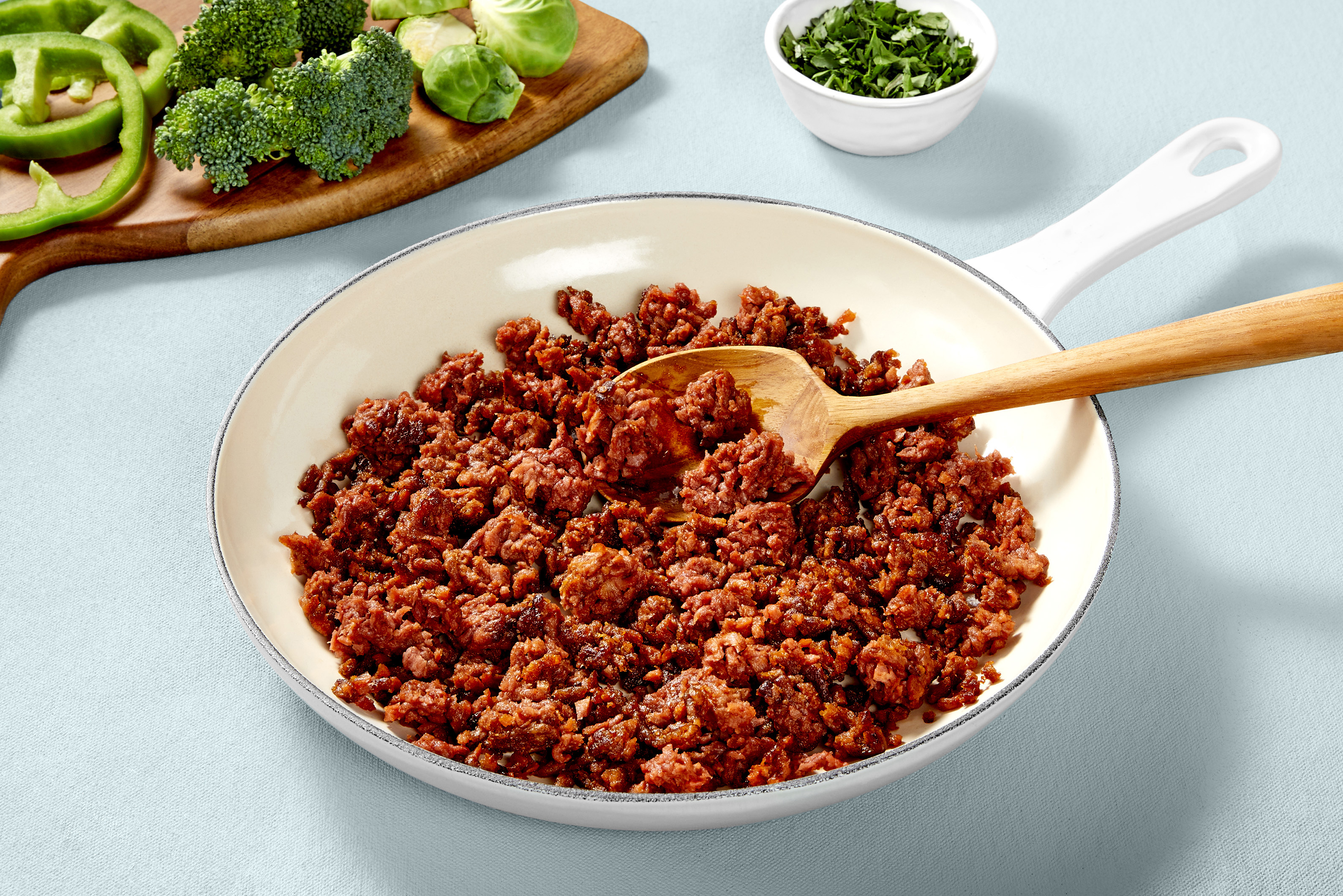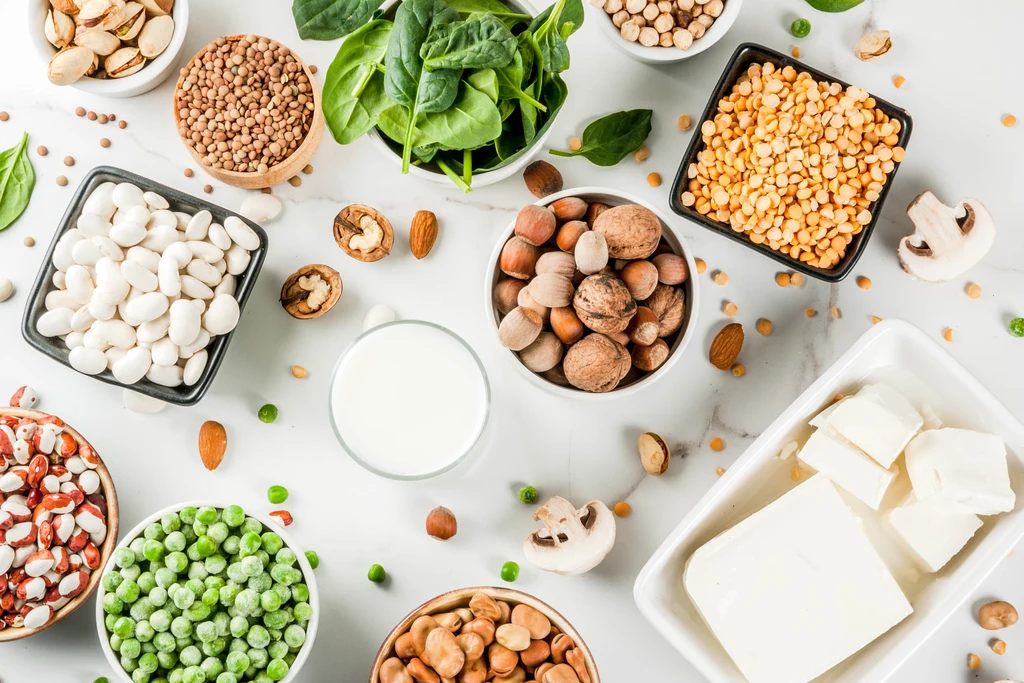In recent years, plant-based protein sources have gained immense popularity as people strive for healthier lifestyles and sustainable eating habits. With an increasing number of individuals adopting vegetarian or vegan diets, it is crucial to understand how to incorporate adequate amounts of protein from plant sources while still ensuring a balanced diet. This article dives deep into the world of plant-based proteins, highlighting their benefits, nutritional information, and the best vegan protein sources for those looking to enhance their dietary choices.
Plant-based protein

The transition towards a plant-based protein diet has been fueled by various factors, including health concerns, environmental awareness, and ethical considerations surrounding animal welfare. For many, understanding what constitutes plant-based protein and how to effectively include it in daily meals is foundational to achieving overall wellness.
Plant-based proteins are derived from plants, providing essential amino acids that our bodies need to function optimally. Unlike some traditional animal-based proteins which can be high in saturated fats and cholesterol, plant proteins generally offer healthier fat profiles as well as additional fibers, vitamins, and minerals. These proteins come from a vast array of sources, each yielding unique flavors and textures that can elevate any meal.
One of the most common misconceptions about plant-based proteins is that they do not provide complete proteins, which means that they lack one or more of the essential amino acids required for human health. While it is true that many plant sources are incomplete, combining different plant foods can yield all essential amino acids necessary for a balanced diet. Moreover, with the right combination of ingredients, vegans and vegetarians can easily meet their protein needs without relying solely on animal products.
Eating a diverse range of plant-based proteins ensures variety, preventing boredom and enhancing palatability in your meals. Additionally, including these proteins has numerous health benefits, such as improved digestion, lower risks of chronic diseases, and better weight management. Let’s explore the best vegan protein sources for a balanced diet, uncovering the nutritional value and culinary possibilities within each category.
Best vegan protein sources for a balanced diet.

When looking for delicious and nutritious plant-based protein options, it’s essential to select a variety of foods to ensure you’re meeting all your dietary needs. This section will explore some of the richest vegan protein sources and how they fit into a balanced diet.
Legumes
Legumes are a powerhouse of plant protein, offering a wide range of nutrients alongside their protein content. This group includes lentils, chickpeas, black beans, kidney beans, and edamame. Each type of legume boasts distinct flavors and textures, making them an incredibly versatile addition to your meals.
Lentils, for instance, can be used in soups, stews, salads, or even made into lentil burgers. They cook relatively quickly compared to other beans and are packed with fiber, iron, and folate. Chickpeas are equally versatile; you can toss them into salads, roast them for snacks, or blend them into hummus. Their nutty flavor pairs well with spices, allowing for endless culinary creativity.
Beans, such as black beans and kidney beans, can be added to chili, tacos, or grain bowls. Not only do they contribute significant protein content, but they also promote satiety, helping you feel full longer. Edamame, young soybeans, can be enjoyed as a snack, tossed into stir-fries, or blended into pesto. The protein content in legumes is remarkable, often delivering around 15 grams per cooked cup.
Incorporating legumes into your diet can help improve heart health due to their high fiber content, which aids in lowering cholesterol levels. Moreover, being rich in antioxidants and phytonutrients, legumes can protect against various diseases. By infusing legumes into your meals, you’re not just enhancing the protein profile but also nourishing your body with important vitamins and minerals.
Whole Grains
Whole grains are another vital source of plant-based protein that should not be overlooked when building a balanced diet. Quinoa, brown rice, barley, bulgur, and farro are excellent options that offer not only protein but also complex carbohydrates, fiber, and essential nutrients.
Quinoa is perhaps the most popular whole grain among vegans. Often referred to as a “superfood,” quinoa is a complete protein, meaning it contains all nine essential amino acids needed for bodily functions. Its light, fluffy texture makes it a perfect base for salads, grain bowls, or side dishes. Brown rice, while not a complete protein on its own, can be paired with legumes to create a complete protein meal.
Barley and bulgur are also great alternatives, providing a nutty flavor that complements various dishes. Barley works beautifully in soups and stews, while bulgur can serve as the foundation for tabbouleh salad. Farro, with its chewy texture, is delightful in grain bowls or served alongside roasted vegetables.
In addition to being rich in protein, whole grains offer numerous health benefits. They are linked to reduced risks of heart disease, certain cancers, and diabetes. Whole grains may also aid in weight management, as their fiber content promotes feelings of fullness. By integrating a variety of whole grains into your diet, you can create satisfying meals that nourish both your body and mind.
Nuts and Seeds
Nuts and seeds are often underestimated as sources of plant-based protein, yet they pack a serious punch. Almonds, walnuts, chia seeds, flaxseeds, pumpkin seeds, and hemp seeds are some of the top contenders in this category, each bringing unique flavors and textures to the table.
Almonds make for a fantastic snack option, providing around six grams of protein per ounce. They’re also high in healthy fats, vitamin E, and magnesium. Walnuts, known for their brain-like shape, are rich in omega-3 fatty acids and can be incorporated into salads, smoothies, or simply enjoyed raw.
Chia seeds and flaxseeds are exceptional sources of plant-based protein and omega-3 fatty acids. When soaked in liquid, chia seeds develop a gel-like consistency, making them perfect for puddings or smoothies. Flaxseeds can be ground and added to baked goods or sprinkled over cereals for an extra protein boost.
Pumpkin seeds are another powerhouse, offering nearly eight grams of protein per ounce. Their crunchy texture and slightly sweet flavor make them ideal for snacking or topping salads and grain bowls. Hemp seeds contain all essential amino acids and are rich in healthy fats, making them versatile additions to smoothies, yogurt, or salads.
In addition to their protein content, nuts and seeds provide healthy fats, fiber, vitamins, and minerals. Consuming these foods regularly can support heart health, reduce inflammation, and promote brain function. Incorporating nuts and seeds into your meals can enhance both the taste and nutritional quality of your diet.
Tofu and Tempeh
Tofu and tempeh are two of the most celebrated plant-based protein options among vegans and vegetarians alike. Derived from soybeans, these foods not only provide substantial amounts of protein but also contribute unique textures and flavors that can elevate any dish.
Tofu, often recognized for its versatility, comes in several varieties, including silken, firm, and extra-firm. Silken tofu is ideal for blending into smoothies or desserts, while firm and extra-firm tofu can be sautéed, grilled, or stir-fried. Tofu absorbs the flavors of marinades and spices exceptionally well, making it a compelling choice for various cuisines.
On the other hand, tempeh is fermented soybean product that possesses a nuttier flavor and firmer texture compared to tofu. Its fermentation process enhances its digestibility and nutrient profile. Tempeh can be sliced, crumbled, or cubed and utilized in sandwiches, salads, stir-fries, or even grilled on skewers. Moreover, it is an excellent source of probiotics, promoting gut health.
Both tofu and tempeh contain essential amino acids, making them complete protein sources. They are also rich in calcium, iron, and various vitamins. Regular consumption of these soy products can lead to numerous health benefits, including improved heart health, reduced risk of certain cancers, and enhanced bone density. By incorporating tofu and tempeh into your meals, you can enjoy their myriad health benefits while exploring new culinary landscapes.
Conclusion
Crafting a balanced diet with ample amounts of plant-based protein is achievable through thoughtful meal planning and a willingness to experiment with various ingredients. A combination of legumes, whole grains, nuts and seeds, as well as tofu and tempeh can provide the essential nutrients needed for overall health while supporting sustainability and ethical practices.
As you embark on your culinary journey with the best vegan protein sources for a balanced diet, remember to embrace the diversity of flavors and textures available to you. Making mindful dietary choices encourages a holistic approach to nutrition, leading to a healthier lifestyle and affection for the planet. Whether you’re a seasoned vegan or just beginning to explore plant-based options, there’s a world of plant proteins waiting to be discovered, enjoyed, and shared.


